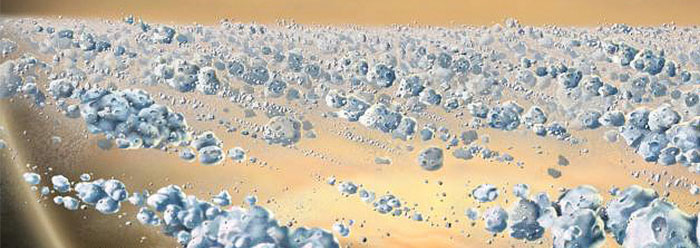
Planetary Quandaries Solved: Saturn Is Young
NASA’s Cassini spacecraft has been on a mission to gather information on the structure and composition of Saturn, its rings, and its moons. Conventional cosmology holds that the planets of the solar system are billions of years old. But the more that scientists learn about Saturn’s systems, the more they uncover evidence of a young planet.

Science Still in the Dark about Dark Energy
Evolutionary astronomers have a problem. The universe is expanding at an ever-increasing rate, but if general relativity is an accurate cosmological model, and if the universe is made up of the kinds of matter and energy that are directly detectable (like atoms and light), then its expansion should be slowing.

Can Cosmic Collisions Create?
From setting orbits straight and creating moons, to manufacturing magnetic fields, secular science has consistently used chance cosmic collisions and near-misses to explain the origins of a host of fine-tuned attributes. This strong reliance on lucky coincidences reveals a bias toward “methodological naturalism.”

Inflation Hypothesis Doesn't Measure Up to New Data
Since the Big Bang story of the origin of the universe has been refuted by a host of external observations and internal contradictions,1 secular science has been forced to postulate additional, exceedingly improbable events to keep it afloat.

Rescuing Ring Ages
The rapture of seeing Saturn's rings in a telescope for the first time has been enough to inspire many young people to become astronomers. Galileo called them a "most extraordinary marvel." In today's age of planetary reconnaissance, we now have close-up data and pictures beyond his imagination.



